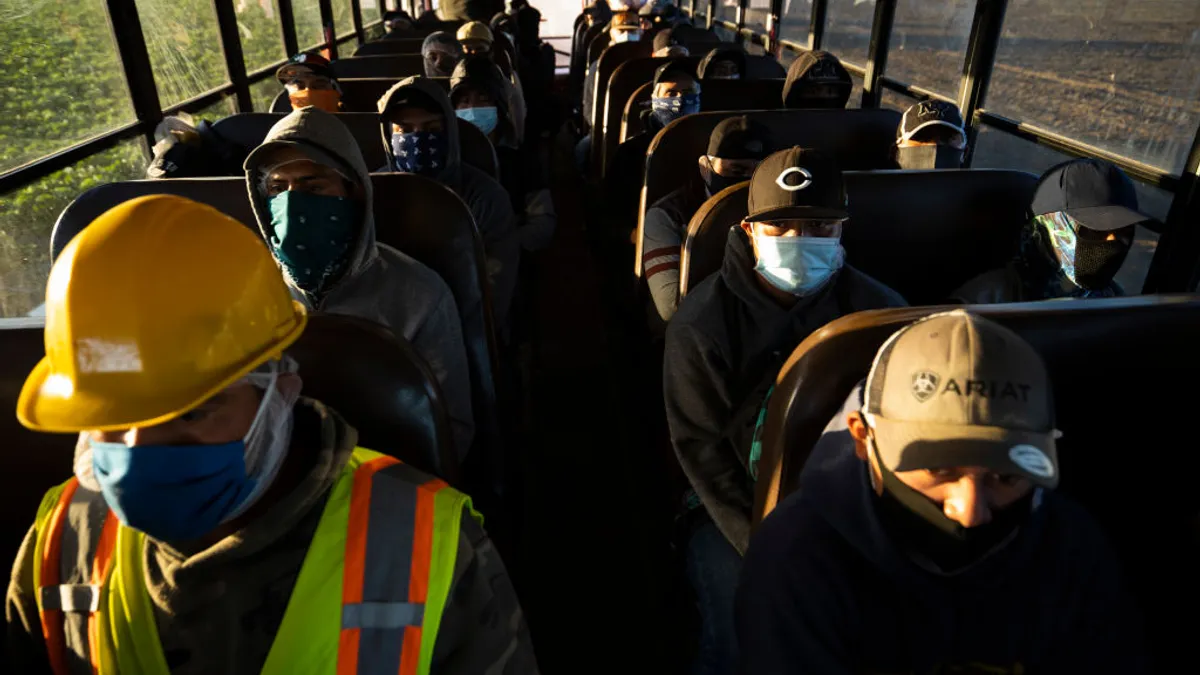Dive Brief:
- A federal court blocked a rule strengthening legal protections for temporary farmworkers from going into effect nationwide.
- The U.S. District Court for the Southern District of Mississippi last month sided with farm groups, who argued the Department of Labor exceeded its authority when crafting a rule extending safety and organizing protections to H-2A visa holders.
- The decision comes after two previous court orders overturned the rule in a number of states and for certain grower groups.
Dive Insight:
The Labor Department rule was intended to provide additional safeguards for temporary farmworkers who are among the most vulnerable to workplace abuse.
The rule granted protections for workers advocating for better working conditions, allowing H-2A visa holders to decline employer-sponsored meetings that discourage organizing. It also included safety measures such as a ban on employers confiscating workers' documents and a requirement that seatbelts be added to vehicles transporting workers.
The United Farm Workers of America, in response to a previous court decision to block the regulation in 17 states, said the "life-saving" changes under the Labor Department's rule were needed to "protect guest workers from exploitation and trafficking." The Labor Department started rulemaking efforts after a farm in Georgia grabbed national headlines for forcing farmworkers to work at gunpoint and live in squalid conditions.
The judge's decision to halt the workplace rule nationwide is another legal victory under a Supreme Court decision limiting federal agencies’ regulatory powers without explicit instruction from Congress. The Mississippi judge also said the regulation would bring additional burden to farm operations and state governments, siding with plaintiffs International Fresh Produce Association and the American Farm Bureau Federation, who led the effort to overturn the rule.
“Farm Bureau agrees that workers should be treated fairly and respectfully," American Farm Bureau Federation President Zippy Duvall said in a statement after the ruling. "We also believe fairness to farmers is important and the DOL rule was overly broad to the point of being unlawful."








